The school year ended and the two students, Hussein and Nuri al-Ibish, went back to Damascus from the American University of Beirut (then called the "Syrian Protestant College"), to spend their vacation with their family. This was in 1910, and they had brought back with them a new team sport that was alien to Syrian society. It was very different, and nothing like running, swimming, and horse riding. This new sport was football. The young men of Damascus quickly flocked to it, and just three years later, they founded the first local football team, called al-Hilal Club. Damascus had no sports stadium at the time, and so their matches were held in the residential area of Arnous.
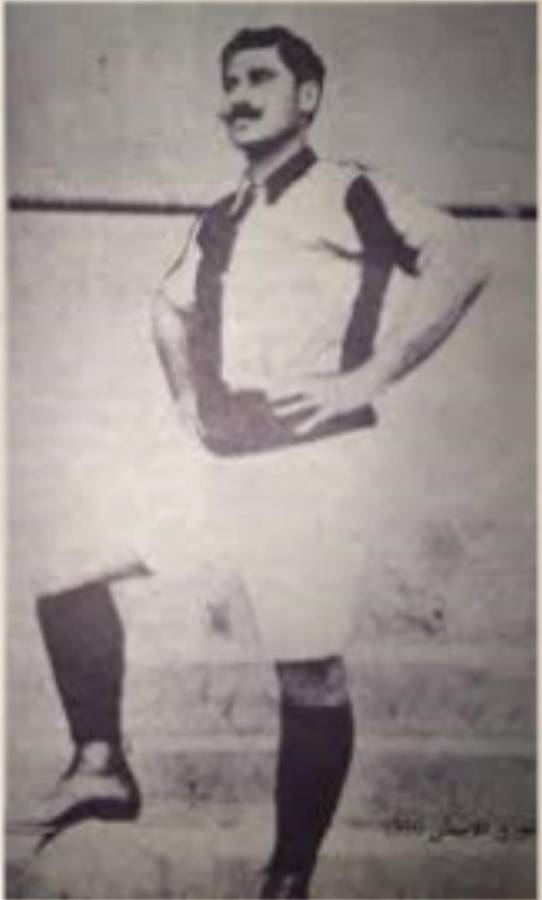
The founder of the game of football in Syria, Nuri al-Ibish
However, the development of sports in the region remained limited by the outbreak of World War I in 1914, to which thousands of young men were driven in what was known as "al-'akth áskar" ('military conscription'). Many of them went into hiding to escape the forced conscription into the ranks of the Ottoman army. Following the end of the war and the fall of Ottoman rule in 1918, an Arab rule was established in Damascus under the leadership of Prince Faisal bin al-Hussein, son of the leader of the Great Arab Revolt, Sharif Hussein bin Ali, who provided great support to the Ibish brothers and encouraged them to become professionals of this sport in the Marj al-Hashish area (the land of the Damascus International Fair today), in the center of which Faisal ordered the construction of a large green stadium.
The school year ended and students Hussein and Nuri al-Ibish returned from the American University of Beirut in 1910 to Damascus, bringing a new team sport alien to Syrian society, and very different from running, swimming, and horse riding. This sport was football
But this "imported" sport did not impress many clerics, given the short length of the outfit the players wore (especially their shorts), and they objected to its rapid spread among the youth of Damascus, saying that it distracts young people from prayer and worship. In one match, the ball fell on top of Sheikh Naim al-Ghazi's head, thus pressing his turban onto his head, which further angering the sheikhs, who considered the incident to be intentional, because of the sheikhs' attitude towards this "football".
The Sharqi football club was established in Damascus in 1919, and organized the first match against the British Army team, stationed in Syria since the end of World War I. The match was held in the al-Mezzeh plain, and was attended by Prince Faisal with all the main publics and officials in his rule. That day, the Syrian team beat their English rivals by four goals to two, and Prince Faisal rewarded them by offering each player a golden watch. Football clubs spread rapidly after that, with less objection from the sheikhs, who accepted the game of football due to its physical benefits and how much people had grown attached to it.
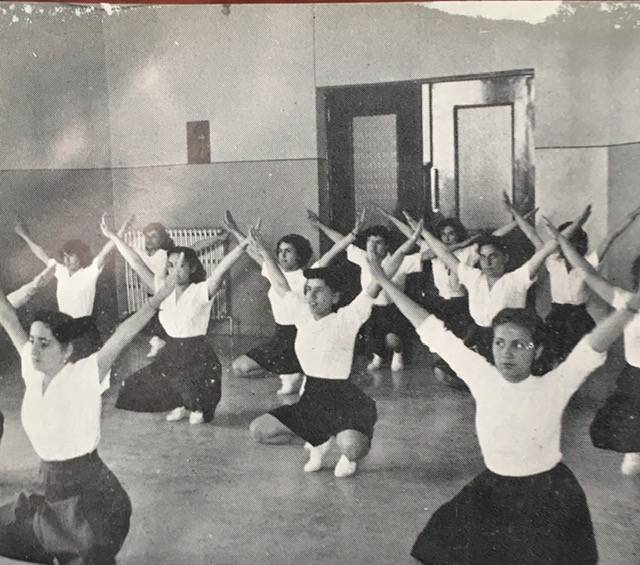
Female school students during their sports classes
Football, this "imported" sport, did not impress many clerics due to the short length of the players' outfits (especially their shorts), and they objected to its rapid spread among the youth of Damascus, saying that it distracts young people from prayer and worship
Then came the Barada Club, which built its own stadium on Baghdad Street. Among its ranks were a number of young players who reached high positions in their lives, such as Dr. Rashad Pharaon, who became a doctor for the kings of Saudi Arabia and minister of health in Riyadh. With him were Dr. Bashir al-Azma, who became Syria's prime minister during the secession, and engineer Ahmed al-Sharabati, Syria's defense minister during the first Palestine war. As for the Ibish brothers, they grew distant from the sport in their later years, with Hussein devoting himself to hunting and becoming one of Syria's most famous huntsman, and Nuri working in agriculture and politics to be appointed minister in 1949.
In 1928, the Qasioun sports team emerged, followed by al-Fayhaa Club and Muawiya Club, founded by the young politician Khalid al-Azm, many years before his appointment as prime minister. 1932 saw the emergence of the civilian Police Football Club and the Military Police football team, then affiliated with the French Mandate Authority.
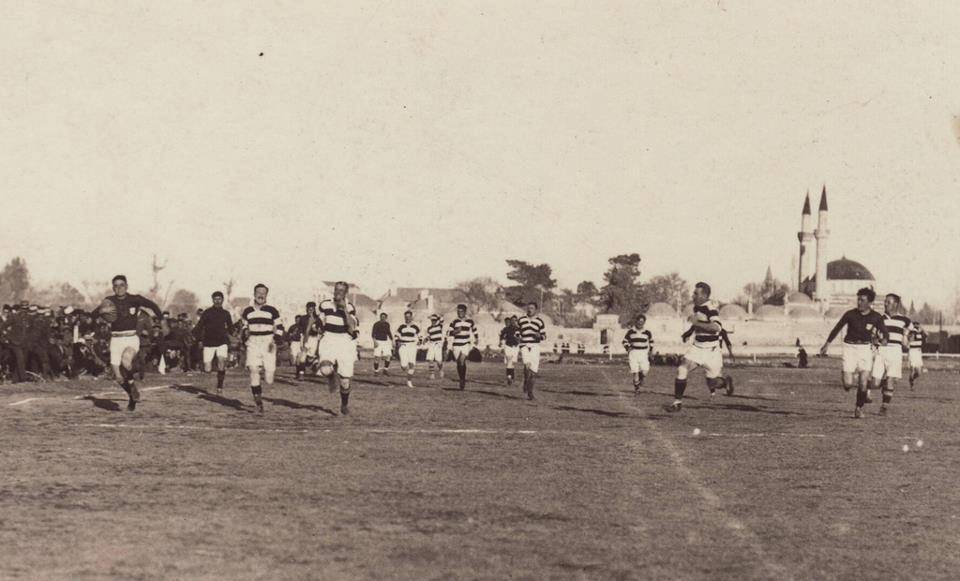
The Municipal Stadium in Damascus during the time of the French Mandate
The most famous athlete of Syria during the French Mandate was the notable young Saeb Muayyad al-Azm, who studied Roman and freestyle wrestling in Paris and won its title in Syria
In 1928, the National Bloc emerged and led the struggle against the French in Syria, and its leaders invested in the field of sports and the youth. The leaders of the bloc showed great interest in sports in general, and in football in particular. They invested in it a lot because it was the meeting place for the youth of Damascus, where the big and small, the rich and poor would gather. The stadiums, after mosques, were the most places capable of gathering thousands of young people in one place.
Due to the success of Khalid al-Azm's experience with the Muawiya football club, Damascus MP Fakhri al-Barudi attended all high school matches and provided moral and material support to the teams of preparation schools, and the Scientific National Academy. During one of the Barada Club matches in the early thirties, the chief of Aleppo, Ibrahim Hanano, donated the silver trophy as a gift to the winners. It was presented to them by his colleague in the National Bloc, lawyer Fayez al-Khoury, brother of President Fares al-Khoury.
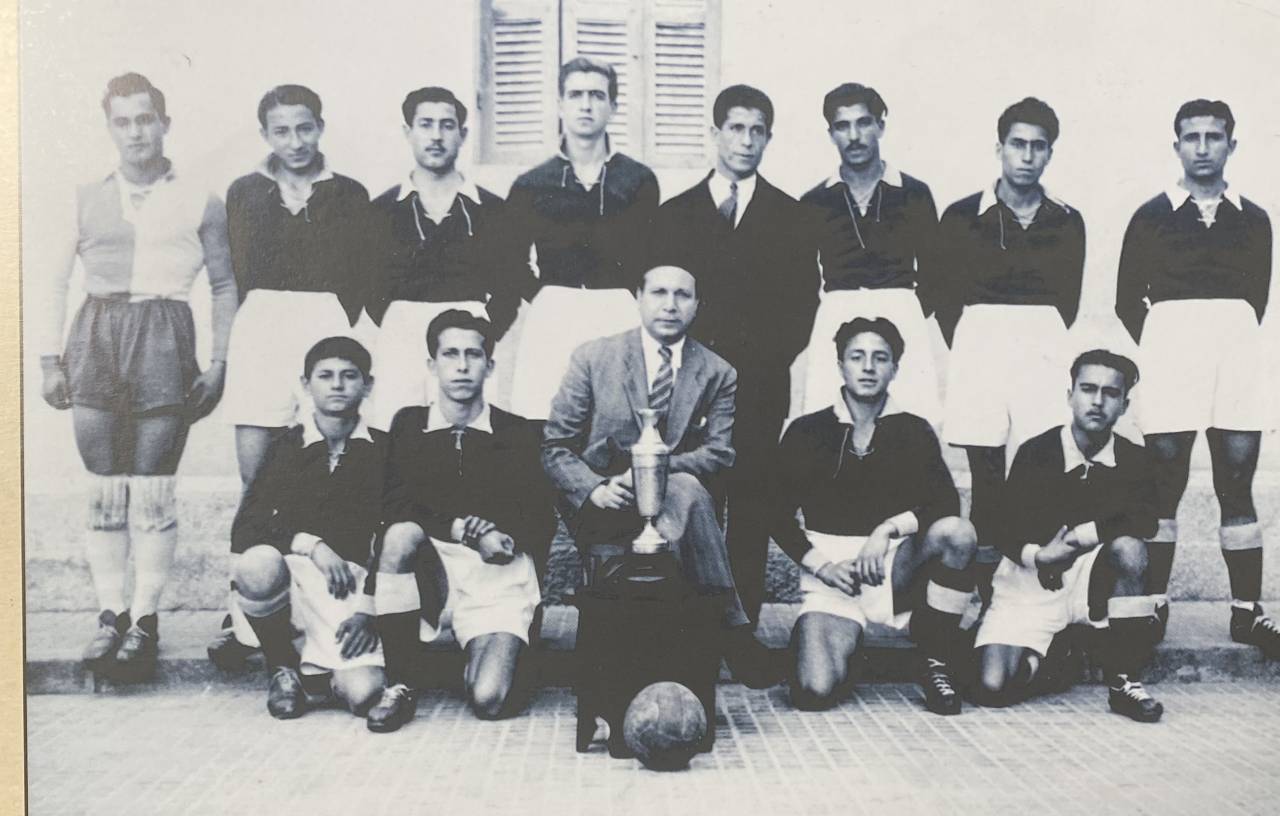
The First Preparatory School football club after winning the Schools Championship Cup in Damascus in 1947
Suhail al-Khoury, the son of Fares al-Khoury, was also active in the field of sports before entering politics, being elected an MP in the fifties, and appointed minister during the session phase. He was head of the Olympic Games Committee and the Football Association that was established in 1938. Scout Commander Ali Abdul Karim al-Dandachi assumed the presidency of the Olympic Committee until the establishment of the union with Egypt in 1958, when the post passed to the Egyptian Minister of Social Affairs Hussein al-Shafei, and Syrian Interior Minister Abdel Hamid al-Sarraj became vice president of the Olympic Committee.
In 1941, a sports supplement appeared in the Al-Ayyam daily newspaper, edited by the young player Kamel al-Bunni, one of the stars of Barada Club, due to the popularity of sports materials and the demand of advertisers for them. Al-Bunni broke away from the Al-Ayyam newspaper in 1955 to establish the first sports publication in Syria, the "Sports Week" newspaper, from which a number of referees and athletes, such as Moataz Kabbani and journalist Adnan Bouzou, graduated.
The wife of Ahmed al-Sharabati was a Syrian equestrian champion, returning from training wearing a horseback riding suit with a hat and tight pants, became the first woman in Damascus to appear in such a strange appearance in front of people
Reaching world athletics
In addition to football, several sports activities appeared in the 1920s and 1930s, such as gymnastics, weightlifting, and basketball, which took on its official form in 1947. The most famous athlete of Syria during the French Mandate was the notable young Saeb Muayyad al-Azm, who studied Roman and freestyle wrestling in Paris and won its title in Syria.
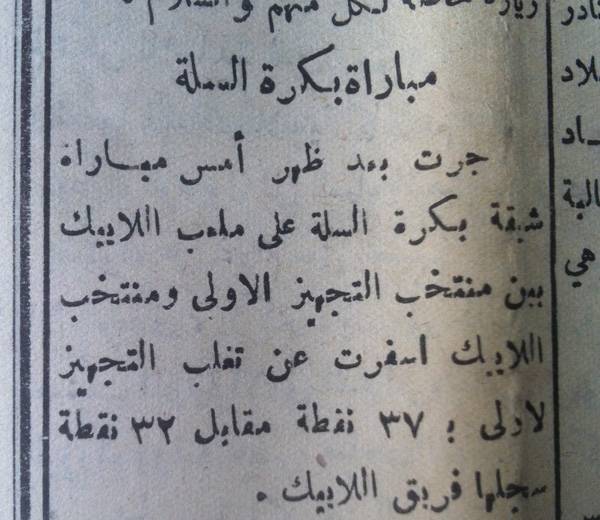
Sports activities in Damascus in the fifties
His social nickname continued to accompany him to international clubs and matches, where he was known as "the player Saeb Lek Muayyad al-Azm", along with Mahmoud al-Bahra, who participated in international weightlifting matches in 1930, and Ezzedine al-Samman, who decided to take part in gymnastics performances.
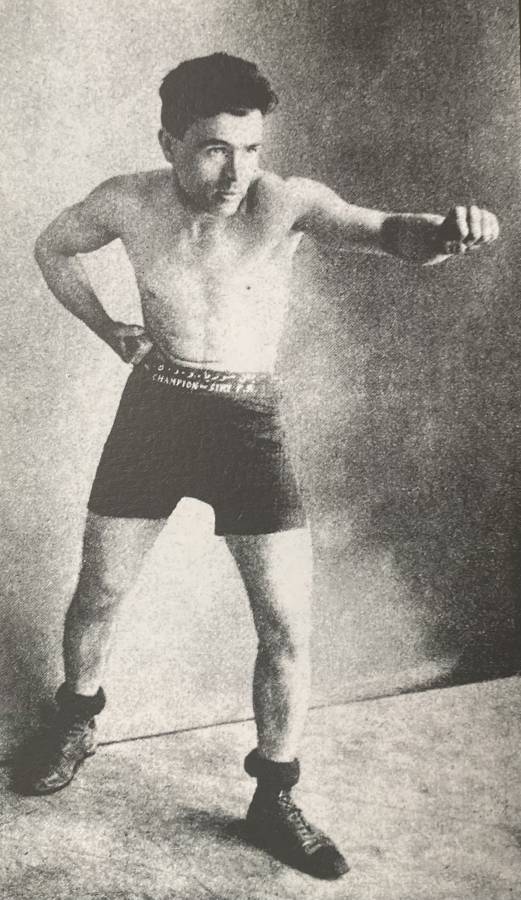
Syrian boxer Saadi al-Qanawati in 1929
In 1922, al-Samman attended the "Gymnastics Circus" show held in Damascus. He had joined it at the age of twelve, and then traveled to Brazil to practice his hobby, which became a profession from which he earned a living. But it was a hard profession, with not enough resources, which forced him to work as a sailor on a British ship — even though he was a wealthy young man from a well-known trading family — before returning to Damascus to continue pursuing his dream, where he was crowned a gymnastics champion in both Syria and Lebanon.
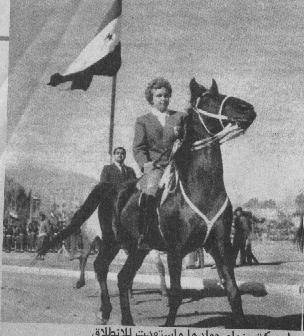
Equestrian champion Skydra Faba, wife of Minister and MP Ahmed al-Sharabati
In 1948, Syria participated for the first time in the Olympic Games in London, represented by the swimmer Zuhair al-Sharbaji, who ranked sixth in the diving competition and returned to Damascus to be welcomed at the presidential palace by President Shukri al-Quwatli in the Muhajir area. The director of protocol at the al-Quwatli palace was lawyer Essam al-Inklizi, son of the martyr Abdul Wahab al-Inklizi, Syria's tennis champion. The wife of Ahmed al-Sharabati was a Syrian equestrian champion. Returning from training wearing a horseback riding suit with a hat and tight pants, she became the first woman in Damascus to appear in such a strange appearance in front of people.
Raseef22 is a not for profit entity. Our focus is on quality journalism. Every contribution to the NasRaseef membership goes directly towards journalism production. We stand independent, not accepting corporate sponsorships, sponsored content or political funding.
Support our mission to keep Raseef22 available to all readers by clicking here!
Interested in writing with us? Check our pitch process here!
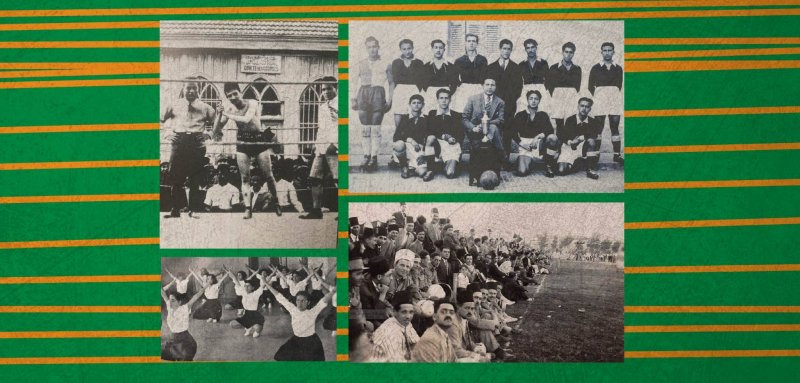
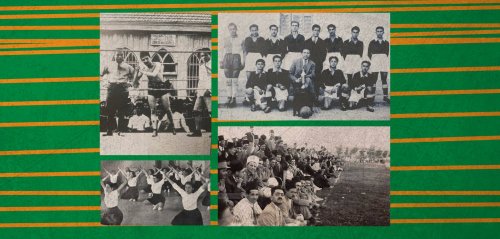
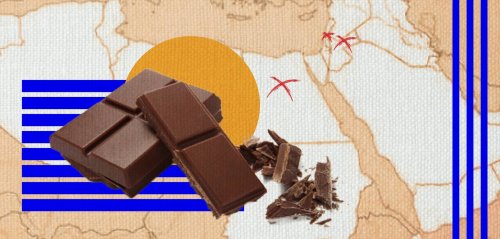





Join the Conversation
ذوالفقار عباس -
1 hour agoا
Hossam Sami -
2 hours agoصعود "أحزاب اليمين" نتيجة طبيعية جداً لرفض البعض; وعددهم ليس بالقليل أبداً. لفكرة الإندماج بل...
Anonymous user -
1 day agoرائع و عظيم ..
جيسيكا ملو فالنتاين -
5 days agoزاوية الموضوع لطيفة وتستحق التفكير إلا أنك حجبت عن المرأة أدوارا مهمة تلعبها في العائلة والمجتمع...
Bosaina Sharba -
1 week agoحلو الAudio
شكرا لالكن
رومان حداد -
1 week agoالتحليل عميق، رغم بساطته، شفاف كروح وممتلء كعقل، سأشاهد الفيلم ولكن ما أخشاه أن يكون التحليل أعمق...